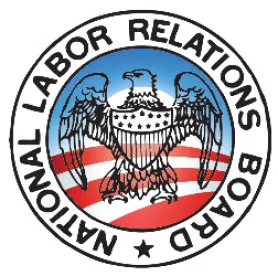Last August, we wrote about three important new rules that the National Labor Relations Board (Board or NLRB) was proposing to issue. As proposed, the new rules reversed existing Board case handling practices and/or case law and essentially codified certain substantive changes in the Board’s law through the formal rulemaking process. Because these changes were slated to be the subject of formal rulemaking, once enacted, they could neither be ignored by the Board nor reversed or modified in future Board case decisions. Rather, in order to change or reverse them, the Agency would be required to go through the formal procedures of the Administrative Procedures Act (APA). Having now passed through the APA’s public notice and comment process, these new rules are now final and scheduled to take effect on July 31.
The proposed changes include the following: (1) a rule modifying the Board’s administrative practice of allowing unfair labor practice charges (typically filed by unions) to block the conduct of election by directing that elections would be conducted but their ballot be impounded until the ULP’s were resolved; (2) a rule requiring that employees be given notice of their employer’s voluntary recognition of a union as their exclusive bargaining representative and that they be given 45 days to call for an election before that voluntary recognition could bar workers from raising a question concerning recognition; and (3) a rule overruling current Board case law holding that the mere language in construction industry collective bargaining agreement language to the effect that a construction union is the bargaining representative of a construction employer’s employees is sufficient to establish a regular bargaining relationship between them and mandating that extrinsic evidence, typically in the form of employee signatures on authorization cards or a petition, must be presented and show that recognition was based on a contemporaneous showing of majority employee support.
All of the rules cut against the interests of labor because they enhance employees’ opportunity to question or resist union representation. So, it was no surprise when the AFL-CIO and a group of construction unions in the D.C./Baltimore area filed suit against the Board, asking a federal judge to block their implementation. Designated Case No. 1:20-cv-01909-BAH, AFL-CIO, et al., v. NLRB, in the U.S. District Court for the District of Columbia, the suit alleges that the new rules are arbitrary and capricious and, thus, violate the APA. The case is assigned to Chief Judge Beryl Howell, an Obama appointee, for decision. Presumably, Judge Howell will be asked to render a ruling on a preliminary injunction before the new rules’ implementation.
This is the second suit that the AFL-CIO has filed in recent times seeking judicial intervention to block new employee/employer-friendly NLRB rules from taking effect. In late May, we wrote about how another Obama appointee, District Court Judge Ketanji Brown Jackson, granted the union’s request to enjoin five sections of the Board’s new election rules, scheduled to take effect on May 31, but refused to enjoin the remainder of the new election rules. The Board has announced its intention to appeal Judge Jackson’s decision to the D.C. Circuit Court of Appeals.
The reason behind such suits is clear. Aside from its interests being hurt by these new rules, Big Labor anticipates a change in the NLRB’s composition and its outlook and a reversion to the many union-friendly decisions and policies they received from the Obama Board should Joe Biden capture the White House in November. However, those anticipated reversionary pro-union changes will not be so easily accomplished if formal APA rules are in place and stand in the way of that change because administrative agencies must adhere to their formal rules and may not reverse them by case decision and without going through the formal rulemaking process. Accordingly, in anticipation of a change in the White House and the Board, the AFL-CIO is pulling out all stops and doing everything it can to keep the current Board’s new rules from becoming a reality.
Stay tuned for Judge Howell’s anticipated decision on the Union’s request for a preliminary injunction. Unless the Board further postpones the implementation of these new rules, a decision is anticipated before July 31.





 />i
/>i
